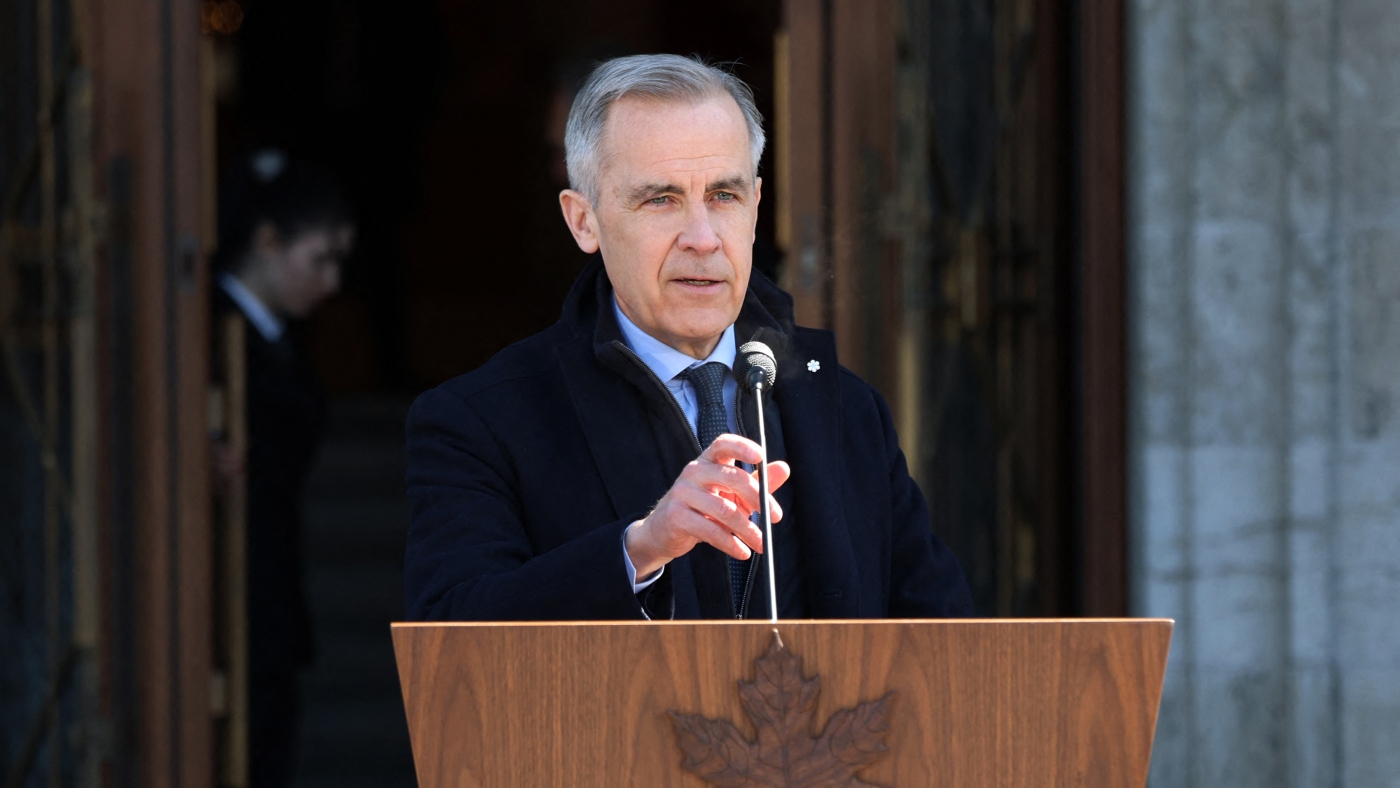Canadian Politics Heat Up as Snap Election Looms Amid U.S. Tensions
As Canada braces for a sudden election on April 28, the political landscape is rife with anticipation. Mark Carney, who recently took over as Canada’s Prime Minister, is entering the electoral arena for the first time, while his main opponent, Conservative leader Pierre Poilievre, aims to capitalize on the current political climate.

Mark Carney at Rideau Hall in Ottawa. Dave Chan/AFP via Getty Images
Canada’s political scene is currently dominated by a trade conflict with the United States and perceived threats to its sovereignty. Carney, who previously held roles leading the central banks in Canada and England, stepped into the prime ministerial role following Justin Trudeau’s resignation. Trudeau had prorogued Parliament in response to political challenges, but Governor-General Mary Simon agreed to Carney’s request for an early election, dissolving Parliament in the process.
The Sudden Election Call
Traditionally, the leader of the party with the most seats in the House of Commons becomes the prime minister. Though a general election was initially scheduled for October, Trudeau’s decision to step down prompted an unexpected election call. This decision was further influenced by the looming threat of a no-confidence vote from opposition parties.
President Trump’s recent tariffs and his statement about potentially annexing Canada as a U.S. state have intensified the stakes of this election, shifting the focus from domestic economic issues to international relations and sovereignty.
Changing Poll Dynamics
At the start of the year, Poilievre held a strong lead over the Liberals in polls, driven by public dissatisfaction with economic conditions. However, recent polling data from the CBC poll tracker shows Carney has closed the gap, now running neck-and-neck with Poilievre.

Pierre Poilievre addressing the media. Dave Chan/AFP via Getty Images
The Trump Influence
Trump’s policies and rhetoric have reshaped the election narrative, benefiting Carney’s Liberals, who position themselves as defenders against U.S. overreach. While Poilievre was initially seen as a strong candidate to manage relations with Trump, recent controversies, including statements from allies like Alberta Premier Danielle Smith, have complicated his campaign.
Poilievre has denounced Trump’s tariff threats and assured Canadians that “Canada will never be the 51st state of the U.S.” Meanwhile, Carney has criticized Poilievre’s stance, suggesting he would be overly compliant with Trump.
An Accelerated Campaign
With only five weeks to campaign, Carney and Poilievre must quickly rally support. Carney is running in Nepean for his first parliamentary seat, while Poilievre seeks reelection in Carleton. The Liberal minority government previously relied on alliances with smaller parties, such as the New Democratic Party and Bloc Québécois, which also play crucial roles in the upcoming election.






